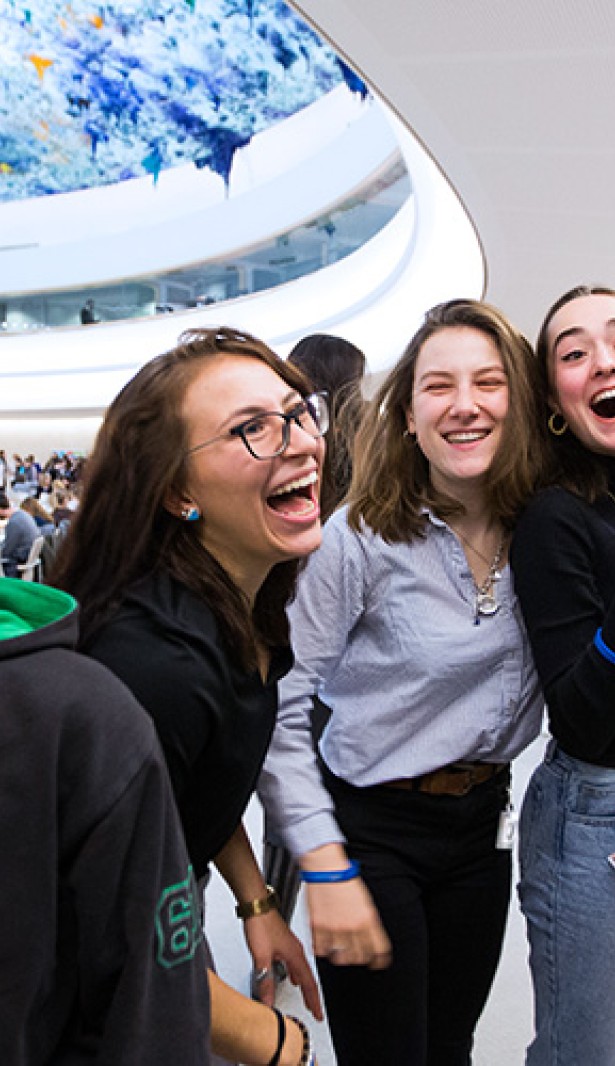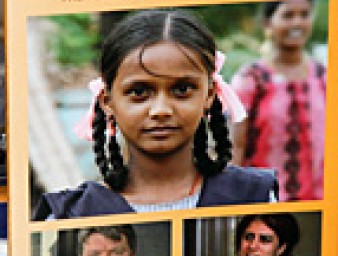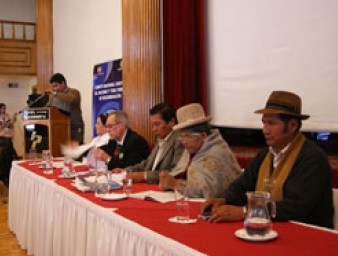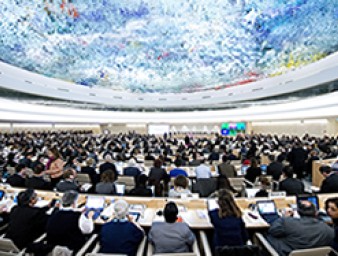The leaders they are looking for
14 December 2018
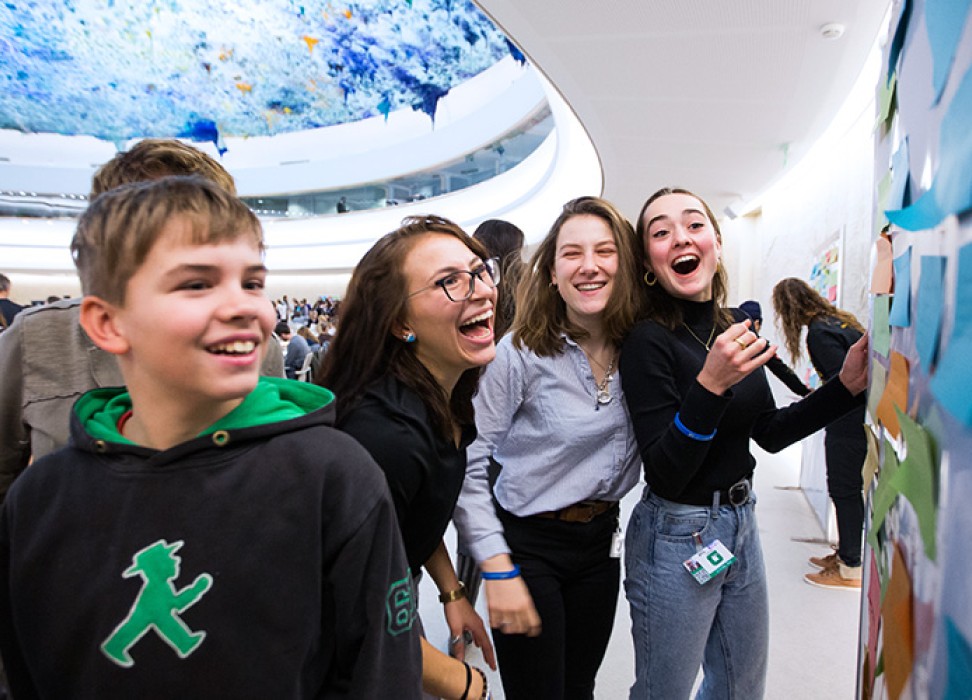
It was a rare sight for the Human Rights Chamber at Palais des Nations in Geneva: over 400 pupils and students between the ages of 12 and 19 from school in the greater Geneva area came together to commemorated the 70th anniversary of the Universal Declaration of Human Rights.
They shared their hope and dreams, what human rights mean to them today as well as their demands for their futures, and celebrated the part children play as human rights defenders.
During that uniquely "inter-generational" event, prizes were awarded to the winners of a video competition that was launched in 2018 by the UN Human Rights office. Children were asked to share their human rights stories in 180 seconds and one of the most striking came from a group of seven boys from Fribourg, western Switzerland, who recounted the fictional story of a young refugee from Syria trying to cope with his displacement and new life in Switzerland.
"It’s a fictional story. We realised that those who migrated, not necessarily to Switzerland but also to other countries, weren’t seen as equal to the population there, they were rejected," one of the boys said.
"We would like to see wars end because if they continue we will have an increasing number of migrants. Likewise, climate change is a major driver for migration," another added.
For Thibaud Mabut, a 19 year-old student from Geneva interning with the NGO Greenpeace, most people his generation take human rights for granted. He said that human rights are under attack and the next generation should protect them.
"My human rights, which I equate to the metaphor of a sand castle, is something others should have too, without discrimination based on sexual orientation, skin colour, nationality, age or belief." Thibaud said.
"So how do we do this? We learn from all those who have built their own sand castles before us and we do the same for all: we vote, we protest, we engage in debates, we express solidarity and we try to build the greatest, most beautiful sand castle of human rights for all, bar none."
Solidarity for the rights of others was one of the repeated wishes of young human rights defenders such as Emma Bonvoisin, a 17 year old student from Geneva, who gave ideas to fellow students and parents on how to support young people from the LGBTQ+ community. She pointed out that the Constitutions of only five countries in the world guarantee the rights of members of that community on an equal basis with their other citizens.
"We need to stand up for the community; not only members, but everyone can help," Emma said. "We need to make the LGBTQ+ community a normal and recurring subject of conversation and it starts with you talking and educating yourself on the subject. The bigger the number of people who support the community the bigger the impact on LGBTQ+ members’ lives."
Because he was also perceived as ‘different’, young UN Human Rights Champion, Robdarius "Roben X" Brown, was bullied for half of his life. The US entertainer and anti-bullying activist has albinism, a genetic condition which is still greatly misunderstood. Robdarius created a musical alter-ego, Roben X, whose super power helped him overcome bullying.
"When we are children, we know no hate, we know no pain, we know no discrimination; it is taught. So I figure with this ability, with this power I can make a difference, I can be one of the many voices of the people to preach love and to give back to the youth: our future," he said.
Konstantinos Papachristou, a child rights activist from the Eurochild Children's Council, created his platform Teens4greece, following the financial crisis in his country. He pointed out that young people are the most affected by the crises in his country.
"Involving children in the decision making process is the answer to our problems. If we raise our voice and if children and adults work together in every aspect of society then we can achieve what we are looking for: change, progress and evolution," Konstantinos said.
During a roundtable with some of the youths present, UN Human Rights Chief, Michelle Bachelet, recalled that this year’s commemoration was to solidify the world’s commitment to the rights enshrined in the Universal Declaration.
"… To recommit with those dreams, values and principles that [UN] Member States 70 years ago thought were so important to never again witness what happened during the two World Wars," she said. "It’s great to recommit with young people because we need them to stand up for those values and to ensure that support for these values everywhere."
The event was also an opportunity for renowned Spanish artist, Cristóbal Gabarrón, to present the Kids 4 Human Rights competition winners. Over 17,000 children from 71 countries submitted entries in the drawing competition.
14 December 2018
